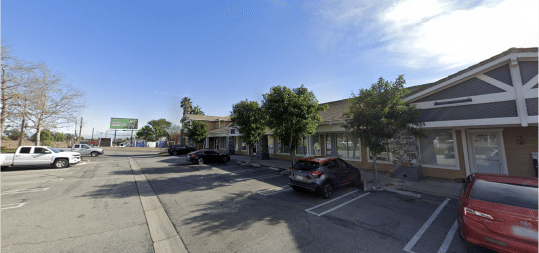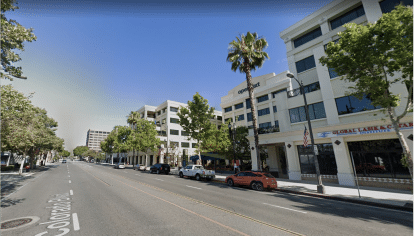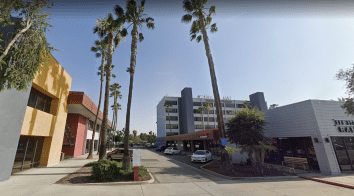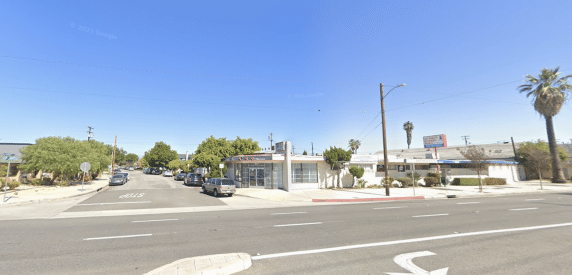
When you learn about a loved one’s arrest and detention, it’s comprehensible to try and secure their freedom as soon as possible to minimize their stay behind bars. The best way to ensure a release is through bail bonds which allow you to post bail money you couldn’t otherwise afford. If you lack knowledge regarding California bail laws, you might not understand this process. At Cali Bail Bonds, we have given an overview of the bail bonds process in this article to help with your bailout from a Riverside County jail.
Bail is a legal process under California legal system that allows accused persons to be released from jail awaiting trial. Bond is the court payment or money your Riverside County bail bonds agent makes for you, as an assurance that you will show up in court. The court keeps this deposit until the case is concluded. If you comply with all the requirements of your pretrial release, you or the bail bonds company will receive back the bond money. However, if you fail to show up for the proceedings as scheduled, you will forfeit the money.
A bail bond is a promise, backed with a surety bond, that when the court releases you, as the defendant, you will attend the court as scheduled until their case is concluded. The court keeps this bond money until the close of the case. A bail bond is the best way to pay bail because even if you can’t raise the full bail money, your Riverside County bail bonds agent will deposit the bond money for you in exchange for release.
Bail services are provided at a premium fee of 10% of the full bail. As a defendant with financial constraints, you no longer need to stay in jail because you can’t raise the money required as bail. All you need is to pay the 10% non-refundable fee, and the bail agent will post the full bail for you.
And because these individuals are depositing their money on your behalf, you must offer collateral. You deposit the collateral as a way of assuring the company you won’t skip town after your release, resulting in forfeiture of the money they deposited in court. If you decide to run away and your bail agency forfeits the bond money, they can use the collateral to cover their losses.
If someone else is bailing you out of jail, they must be willing to become your co-signer. The cosigner is liable for your actions, so if you decide to skip town, the bail agency will come after them to pay the bond money lost. Bail agents will seize the property or assets used as collateral and sell them to recover the bail money.
When calling your bail agency, you must provide basic information like your full name, date of birth, the jail location, bail money, and charges against you. With all this information available, your pretrial release will be smooth. If you are the person helping the defendant in jail to secure freedom, you must obtain this information and share it with the bonds company.
Finally, if the court grants you bail, you are advised to take this opportunity and regain your freedom awaiting trial. You should do this because you can spend time with your family and continue working when out of jail. Most essential, spend more time with your criminal defense attorney evaluating the matter and developing solid legal defense strategies to contest the charges.
Securing freedom from jail pending prosecution involves nine simple phases. These are:
When you commit a crime and are seen by law enforcement or someone reports you, you will be apprehended and put in custody or jail.
Once you are behind bars, the arresting officer will take your fingerprints, mug shots, and run background checks for warrants. Once you are booked, the officer refers to the bail schedule to determine the amount you should pay as bail based on your crime.
If you have the phone number of a reputable bail bonds company, you can call them directly and share information regarding your bail and charges. The bail company will need you to pay a premium fee before offering their services. And because you don’t have an amount like this lying around, you might need to call friends and relatives to raise the money.
Instead of calling the bail agency directly and not having the service fee, you can reach out to family members or friends and inform them of your arrest. These people will then collect basic information, and once they have this information, they will find the best bail bond company in your locality and begin bailing you out.
The bail bond company will explain to you the available options for posting the bail, the documents required, and scheduled court dates.
Once your Riverside County bail agency decides to take your case, you will pay 10% of the total bail fee for using the services. Note that even if you follow the requirements of your pretrial release, the fee is nonrefundable. The company will share with you the available payment options, including credit card, debit card, check, cash, wire transfer, venom, or coin base.
After you have paid the fee, you will complete an agreement via email, online, or in-person with the bondsman in charge of your case. The phase is a short one as it takes around five to ten minutes. The bail agent will then post bail, and you will be out on bond enjoying your freedom until the case is concluded through a conviction or charge dismissal.
The files detailing your charges will indicate the amount provided in the bail schedule as the bail money for the crime. In these cases, the judge enjoys discretion because they can choose to stick to the funds provided in the plan, increase or decrease or entirely deny bail. The decision is made during a bail hearing where the judge considers the following:
If you cannot afford the bail money, you are eligible for a hearing where the prosecuting team carries the burden of proving that bail money is necessary to guarantee the safety of the community and your future court appearances. When the judge decides to grant bail, they will consider your financial situation and other factors listed above to determine the amount. Whatever bail is agreed upon, the reasoning behind it must be put on record.
Apart from bail, the judge could release you on own recognizance. Here, the judge allows you to leave custody without having to post bail. However, this release comes with particular conditions like:
Note that your application for an O.R won’t be accepted readily. The judge might turn down the request, set bail, and have you remain in custody until you pay the bail money.
You must understand that after the court releases you on bail pending the determination of your charges, they impose particular terms that you must comply with to protect the community’s health, safety, and wellbeing. These terms are:
If you breach the conditions imposed during release, the judge has the discretion to allow you to stay out of jail. However, in most cases, a violation of these conditions results in detention for the case period. Additionally, you will be found in contempt of court, resulting in bail forfeiture.
If you are out of jail on bond and a breach of the conditions results in its revocation, your Riverside County bail bonds won’t recover their bond money from the court. So, they will be forced to come after your cosigners and put up collateral to secure the bond.
Raising money to pay bail is expensive, and you don’t have cash lying around waiting for emergencies. However, if you choose to use the services of your Riverside County bail bonds, the process will be affordable and fast. After the company has deposited the bond money with the court, all you need is to pay the premium fee for the services and put up collateral for the remaining amount.
If you appear for all court proceedings as scheduled, and the case is concluded, the bail bonds agency will obtain back their money, and they will return whatever asset or property they were holding as collateral for the surety bond.
If you had the money and paid in cash, the court will refund the money in full. It’s worth noting that bond money is not a penalty for the crime but an assurance that you will show up for your proceedings. So, even if the court convicts you of the underlying offense, the money will be sent to the cosigner or person who assisted you to pay bail.
Also, using property bonds is allowed in California. All required is to use your real property, like a residential home, as collateral to secure your bail company’s surety bond paid to the court. However, it must have a higher value than the bail money for the property to be approved as a bond. If your case is completed without missing court dates, you won’t forfeit the property. However, when you fail to attend your proceedings, they will seize your property to cover their losses.
Even if you have the money to post cash bail, you are discouraged from doing so because the prosecutor has the right to request a court hearing to find out the source of the property used as collateral or money used to post the cash bail. According to PEN 1275.1, the court will deny you bail if you cannot prove the source of funds used to pay cash bail, bail bond fees, or property put up as collateral.
If the judge grants bail but you haven’t left the jail, they can put a hold on your freedom following the prosecutor’s request to investigate the source of your bail. Therefore, you are encouraged to work with a bail agent because they will post bail as soon as it is granted, and the court cannot question the source of the money used by the bail bond agency to post your bail.
In this hearing, you will have the burden of proving the funds used to pay cash bail, bail bond fees, or collateral is from a legitimate source that challenges the source of bail funds. Also, your bail will be suspended if you have been charged with a drug offense or white-collar crime because the prosecutor may suspect the money or collateral is linked to criminal activity. The judge will release the hold or suspension on your release if you meet the burden of proof or the court fails to take any action 24 hours after placing the hold.
Both you and your co-signers have responsibilities. The U.S. Constitution’s 8th amendment allows every citizen charged with a crime the right to pay the court a specific amount of money in exchange for release from custody. This is an excellent opportunity to spend time with your family and resume your routine as a defendant. A pretrial release is a privilege and opportunity, which means not everyone is eligible for the program. If the judge believes you are a flight risk and danger to the community, they may choose to detain you until the case is complete.
Besides, like you have rights, you have responsibilities that must be met. As someone facing criminal charges, you must follow your release from custody conditions like attending court proceedings and other conditions or requirements imposed by the court to ensure the safety and health of society after your discharge. If you attend all your hearings as ordered, the co-signer will receive back the bond money posted with the court once the issue is concluded and regardless of the case’s verdict.
However, sometimes if you are convicted, and part of the sentence includes payment of court fines and restitution fees, the cash bail might be used to pay for these fines, so you might not obtain a refund.
Co-signers have rights and responsibilities as well. By signing the bail agreement, these individuals assume the same responsibilities as those of the defendant. The cosigner has the responsibility of ensuring you attend court proceedings and comply with other court stipulations. However, the primary responsibility is to revoke bail if they realize you are breaching the court orders. Action like these could result in you going back to jail. Otherwise, when they fail to revoke the bail and the defendant doesn’t attend court hearings, the co-signer will be responsible for the entire bond money forfeited to the court.
Co-signers are mainly friends, family members, or people you care for. Therefore, knowing that these people could lose their property or hard-earned money if you skip court, you should take your responsibilities seriously and comply with all release conditions until the case is completed. That way, the co-signer will have their collateral back after the matter.
Riverside County Jail
4000 Orange Street
Riverside, CA 92501
(951) 955-4500
Riverside County Superior Court
4050 Main St,
Riverside, CA 92501
951-777-3147
Most arrests find you off guard with no money or means to post bail. In Riverside County, a bail agent from Cali Bail Bonds is ready to assist and come up with an answer to your financial problem of obtaining bail. When you 562-376-5476, you will speak to one of our bondsmen, who will respond to all your questions about the bail process, and what you need to commence it.
After the bail agreement is signed, the agent handling your case will visit your jail and pay the money. Within no time, you will be at home with your family or at work waiting for the case's prosecution.
"*" indicates required fields






